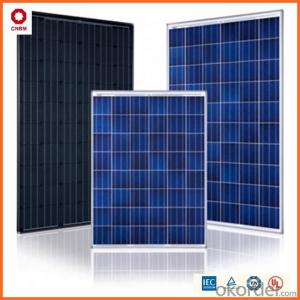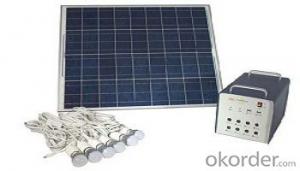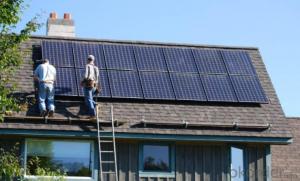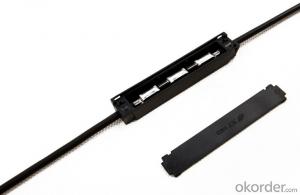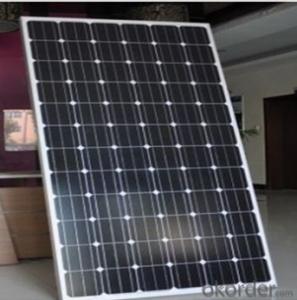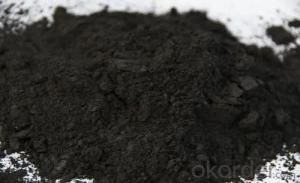☆☆☆Stock On Sale 260w Poly Solar Panel 0.45/W!!!!☆☆☆ A Grade Good Solar Panel
- Loading Port:
- China main port
- Payment Terms:
- TT OR LC
- Min Order Qty:
- 1 watt
- Supply Capability:
- 10000000 watt/month
OKorder Service Pledge
OKorder Financial Service
You Might Also Like
Product Description:
Hot Sale !!! Quality and Safety of 245w-320w Poly Solar Panel
1. Rigorous quality control meets the highest international standards.
2. High-transmissivity low-iron tempered glass, strong aluminium frame.
3. Using UV-resistant silicon.
4. IS09001/14001/CE/TUV/UL
Warranties of 245w-320w Poly Solar Panel
1. 10 years limited product warranty
2. 15 years at 90% of the minimal rated power output
3. 25 years at 80% of the minimal rated power output
Technical date of 245w-320w Poly Solar Panel
ITEM NO.: | Mono 125*125 cell ,36pcs . Power range from 80Wp-100Wp | ||||||||
Maximum Power(W) | 80 | 85 | 90 | 95 | 100 | ||||
Optimum Power Voltage(Vmp) | 17.81 | 17.89 | 17.94 | 17.99 | 18.06 | ||||
Optimum Operatige Current(Imp) | 4.78 | 4.91 | 5.12 | 5.35 | 5.59 | ||||
Open Circuit Voltage(Voc) | 21.98 | 22.05 | 22.14 | 22.28 | 22.45 | ||||
Short Circuit Current(Isc) | 4.95 | 5.15 | 5.36 | 5.65 | 5.84 | ||||
Solar Cell: | 125*125 Mono | ||||||||
Number of Cell(pcs) | 4*9 | ||||||||
Brand Name of Solar Cells | JA Cell, Bluesun Cell | ||||||||
Size of Module(mm) | 1580*808*35 | ||||||||
Caple & Connector Type | Pass the TUV Certificate | ||||||||
Frame(Material Corners,etc.) | Aluminium-alloy | ||||||||
Backing (Brand Type) | TPT | ||||||||
Cell Efficiency for 100W(%) | 15.8% | ||||||||
Weight Per Piece(KG) | 12.0KG | ||||||||
FF (%) | 70-76% | ||||||||
Junction Box Type | Pass the TUV Certificate | ||||||||
Tolerance Wattage(e.g.+/-5%) | ±3%, or 0-3% | ||||||||
Front Glass Thikness(mm) | 3.2 | ||||||||
Temperature Coefficients of Isc(%) | +0.04 | ||||||||
Temperature Coefficients of Voc(%) | -0.38 | ||||||||
Temperature Coefficients of Pm(%) | -0.47 | ||||||||
Temperature Coefficients of Im(%) | +0.04 | ||||||||
Temperature Coefficients of Vm(%) | -0.38 | ||||||||
Temperature Range | -40°C to +85°C | ||||||||
Surface Maximum Load Capacity | 2400Pa | ||||||||
Allowable Hail Load | 23m/s ,7.53g | ||||||||
Bypass Diode Rating(A) | 12 | ||||||||
Warranty | 90% of 10 years,80% of 25 years. | ||||||||
Standard Test Conditions | AM1.5 1000W/ 25 +/-2°C | ||||||||
Packing | carton or pallet | ||||||||
1*20' | 25 Pallets / 450pcs | ||||||||
1*40'STD | 25 Pallets / 100pcs | ||||||||
Features of our products:
• High conversion efficiency mono/poly-crystalline amorphous silicon solar cells
• Modules incorporate high performance bypass diodes to minimize the power drop caused by shading
• High transmittance, low-iron tempered glass
• High performance EVA encapsulant to prevent destroying and water.
• AI frame: without screw, corner connection. 8 holes on the frame can be installed easily
• Good performance of preventing from atrocious weather such as wind and hails
• Certifications: CE IEC TUV VDE UL, Class I
• 10 years 90% power output warranty

Shipping of 245w-320w Poly Solar Panel
By Sea | Delivery from Shanghai or Ningbo seaport |
By Air | Departure from Shanghai Pudong Airport |
By Express | Post by DHL, EMS, UPS, TNT. |
- Q:Can solar energy systems be installed on religious institutions?
- Yes, solar energy systems can be installed on religious institutions. Many religious institutions have recognized the importance of embracing sustainable practices and reducing their carbon footprint. Installing solar panels on their rooftops or grounds allows them to generate clean and renewable energy, which aligns with their values of stewardship and care for the environment. Additionally, solar energy systems can also help religious institutions save money on their electricity bills, freeing up resources to support their missions and community initiatives.
- Q:Can solar energy systems be used in powering recycling plants or waste management facilities?
- Certainly, recycling plants and waste management facilities can make great use of solar energy systems. These systems harness the sun's power to produce electricity, which can then be utilized to operate various equipment and machinery within these facilities. It is worth noting that these facilities require a significant amount of energy to power their operations, including machines for sorting and processing, conveyor belts, and other equipment. By installing solar panels on the roofs or in close proximity to these facilities, they can generate clean and renewable electricity, thus reducing their dependence on conventional energy sources. Solar energy systems offer numerous advantages for recycling plants and waste management facilities. Firstly, they provide a reliable and consistent source of energy, as the sun is readily available in most regions throughout the year. In contrast to fossil fuels or other non-renewable sources, solar energy systems do not deplete natural resources or contribute to greenhouse gas emissions, making them environmentally friendly. This aligns perfectly with the sustainability goals of recycling plants and waste management facilities, which aim to minimize the environmental impact of waste management processes. Moreover, solar energy systems can help these facilities save on energy costs. Once the initial investment in solar panels is made, the ongoing operational expenses are relatively low. Additionally, certain regions offer incentives and financial support for the installation of solar energy systems, further offsetting the initial investment and making it financially attractive. Furthermore, recycling plants and waste management facilities often possess ample surface areas suitable for solar panel installations, such as rooftops or open fields. This facilitates the installation of a sufficient number of solar panels to meet the energy demands of these facilities. In some cases, surplus energy generated by the solar panels can even be fed back into the electrical grid, enabling the facilities to generate revenue from the excess electricity. In conclusion, solar energy systems can effectively power recycling plants and waste management facilities. They present a sustainable and cost-effective solution, reducing dependence on traditional energy sources while aiding these facilities in achieving their environmental objectives.
- Q:Can solar energy systems be used in areas with limited space for ground-mounted installations?
- Yes, solar energy systems can still be used in areas with limited space for ground-mounted installations. In such cases, alternative mounting options can be utilized, such as roof-mounted solar panels or vertical solar panel installations. Roof-mounted solar panels are a popular solution for homes and buildings with limited ground space, as they utilize the available roof area to capture sunlight and convert it into electricity. Additionally, vertical solar panel installations, where solar panels are mounted vertically on walls or other structures, can also be implemented in areas where ground space is limited. These vertical installations allow for solar energy generation in tight spaces or even on building facades. Therefore, even in areas with limited space for ground-mounted installations, solar energy systems can still be effectively utilized through alternative mounting options.
- Q:Can solar panels be installed on different surfaces like glass or metal?
- Yes, solar panels can be installed on different surfaces like glass or metal. In fact, solar panels are commonly installed on rooftops, which are often made of materials like glass, metal, or asphalt shingles. The most common type of solar panels, known as photovoltaic (PV) panels, are designed to be mounted on a variety of surfaces. The installation process involves securing the panels to the surface using racks or frames, ensuring that they are properly angled to maximize sunlight exposure. Whether it is a glass or metal surface, solar panels can be installed and effectively generate electricity from the sun's energy.
- Q:How does the angle of the sun affect the performance of a solar energy system?
- The angle of the sun plays a crucial role in determining the performance of a solar energy system. Solar panels work by converting sunlight into electricity through the photovoltaic effect. The angle at which the sun's rays hit the solar panels directly impacts the amount of energy they can generate. When the sun is directly overhead, its rays are perpendicular to the surface of the solar panels, maximizing the energy output. This is known as the solar noon or the peak sun hours. As the sun's angle decreases, such as during morning or evening hours, the sunlight has to travel through a larger portion of the Earth's atmosphere, which reduces its intensity. This results in a decrease in energy production. Moreover, the angle of the sun also changes with the seasons. During the summer months, the sun is higher in the sky, allowing for more direct sunlight and increased energy production. In contrast, during winter, the sun is lower, leading to reduced solar energy output. To optimize the performance of a solar energy system, it is crucial to consider the angle at which the solar panels are installed. The tilt angle of the panels can be adjusted based on the latitude of the location to maximize the exposure to sunlight throughout the year. Additionally, tracking systems can be employed to follow the movement of the sun and adjust the angle accordingly, further enhancing energy production. In conclusion, the angle of the sun directly affects the performance of a solar energy system as it determines the intensity of sunlight reaching the solar panels. By ensuring the optimal angle and orientation of the panels, solar energy systems can generate maximum energy output and improve overall efficiency.
- Q:How does the quality of solar panels affect their performance?
- The quality of solar panels plays a crucial role in determining their performance. High-quality solar panels are designed and manufactured using advanced technology and materials, which directly impacts their efficiency, durability, and reliability. Efficiency is one of the key factors affected by the quality of solar panels. High-quality panels are built with superior materials and advanced manufacturing techniques, allowing them to convert sunlight into electricity more efficiently. This means that they can generate more electricity from the same amount of sunlight compared to lower-quality panels. Durability is another important aspect influenced by the quality of solar panels. High-quality panels are designed to withstand harsh weather conditions, such as extreme temperatures, strong winds, and heavy snow loads. They are also less prone to degradation, ensuring a longer lifespan and consistent performance over time. Reliability is closely tied to the quality of solar panels. High-quality panels are built to last, reducing the chances of malfunctions or breakdowns. They undergo rigorous testing and quality control processes to ensure that they can consistently deliver their rated power output for many years. Additionally, high-quality solar panels often come with industry-leading warranties, providing peace of mind to the owners. These warranties cover defects, performance issues, and other potential problems, ensuring that customers receive support and replacements if needed. In summary, the quality of solar panels significantly impacts their performance. Investing in high-quality panels can lead to higher energy production, increased durability, and improved reliability, ultimately resulting in better returns on investment and a more sustainable energy solution.
- Q:What is the expected maintenance cost of a solar energy system?
- The maintenance cost of a solar energy system can differ depending on various factors. However, when compared to other methods of generating energy, the maintenance cost of a solar energy system is generally low. Solar panels, which are the crucial component of a solar energy system, are usually designed to be durable and require minimal maintenance. They are constructed to withstand different weather conditions and can last for many years with proper care. However, occasional maintenance may be necessary to ensure optimal performance. The maintenance requirements for a solar energy system typically involve cleaning the panels to remove any dirt, dust, or debris that may accumulate over time. This can be done by using water and a soft brush or with the assistance of automated cleaning systems. It is recommended to clean the panels at least once or twice a year, although this can vary depending on the location and environmental factors. Alongside cleaning, regular inspections of the solar energy system are also vital. This involves checking for any signs of damage, loose connections, or potential issues with the electrical wiring. Inspections can be carried out by the system owner or a professional solar installer, and they are generally done annually. On the whole, the expected maintenance cost of a solar energy system can be relatively low, typically ranging from 0.5% to 1% of the total installation cost per year. This cost mainly covers expenses for cleaning, inspections, and any minor repairs that may be necessary. However, it is important to note that the actual maintenance cost can vary depending on the system's size, location, and specific maintenance requirements. In conclusion, while there are some maintenance tasks associated with a solar energy system, the expected cost is generally low compared to other energy systems. With proper care and regular inspections, a solar energy system can continue to produce clean and renewable energy for many years with minimal maintenance expenses.
- Q:Can solar energy systems be integrated into building design?
- Yes, solar energy systems can definitely be integrated into building design. In fact, solar panels and other solar technologies are commonly incorporated into the design and construction of modern buildings. This integration allows for the generation of clean and renewable energy on-site and reduces dependence on traditional energy sources. Additionally, integrating solar energy systems into building design can help reduce greenhouse gas emissions and contribute to a more sustainable and environmentally friendly future.
- Q:Do solar energy systems require maintenance?
- Yes, solar energy systems do require maintenance. Regular inspections, cleaning of solar panels, and occasional repairs or replacements of components may be necessary to ensure optimal performance and longevity of the system.
- Q:Can solar energy systems be used for powering boats?
- Yes, solar energy systems can be used to power boats. Solar panels can be installed on the boat to capture sunlight and convert it into electrical energy, which can then be used to power various systems onboard, including propulsion, lighting, and navigation equipment. This renewable energy source is increasingly being adopted by boat owners as it reduces dependence on fossil fuels, lowers operating costs, and helps to minimize environmental impact.
1. Manufacturer Overview |
|
|---|---|
| Location | |
| Year Established | |
| Annual Output Value | |
| Main Markets | |
| Company Certifications | |
2. Manufacturer Certificates |
|
|---|---|
| a) Certification Name | |
| Range | |
| Reference | |
| Validity Period | |
3. Manufacturer Capability |
|
|---|---|
| a)Trade Capacity | |
| Nearest Port | |
| Export Percentage | |
| No.of Employees in Trade Department | |
| Language Spoken: | |
| b)Factory Information | |
| Factory Size: | |
| No. of Production Lines | |
| Contract Manufacturing | |
| Product Price Range | |
Send your message to us
☆☆☆Stock On Sale 260w Poly Solar Panel 0.45/W!!!!☆☆☆ A Grade Good Solar Panel
- Loading Port:
- China main port
- Payment Terms:
- TT OR LC
- Min Order Qty:
- 1 watt
- Supply Capability:
- 10000000 watt/month
OKorder Service Pledge
OKorder Financial Service
Similar products
New products
Hot products
Hot Searches
Related keywords

